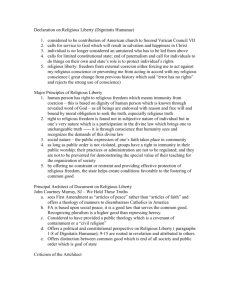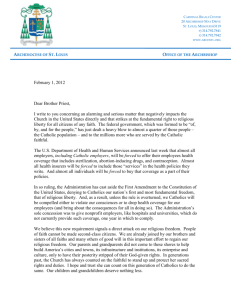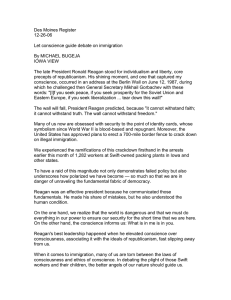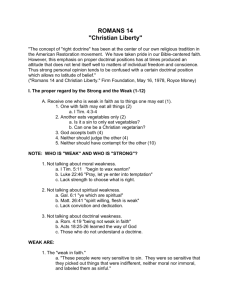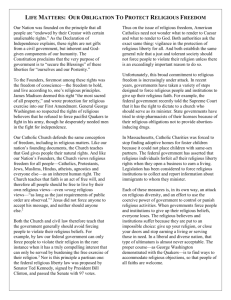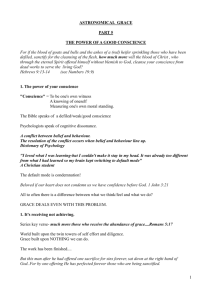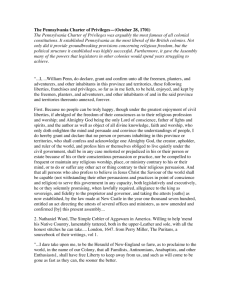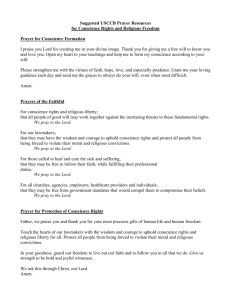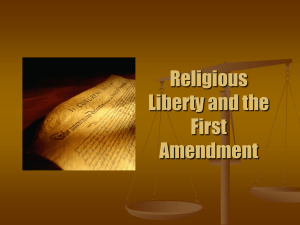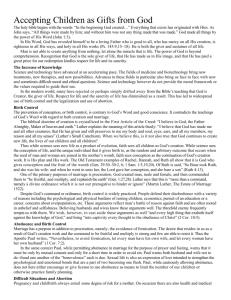Austin Religious Liberty Rally DEO
advertisement
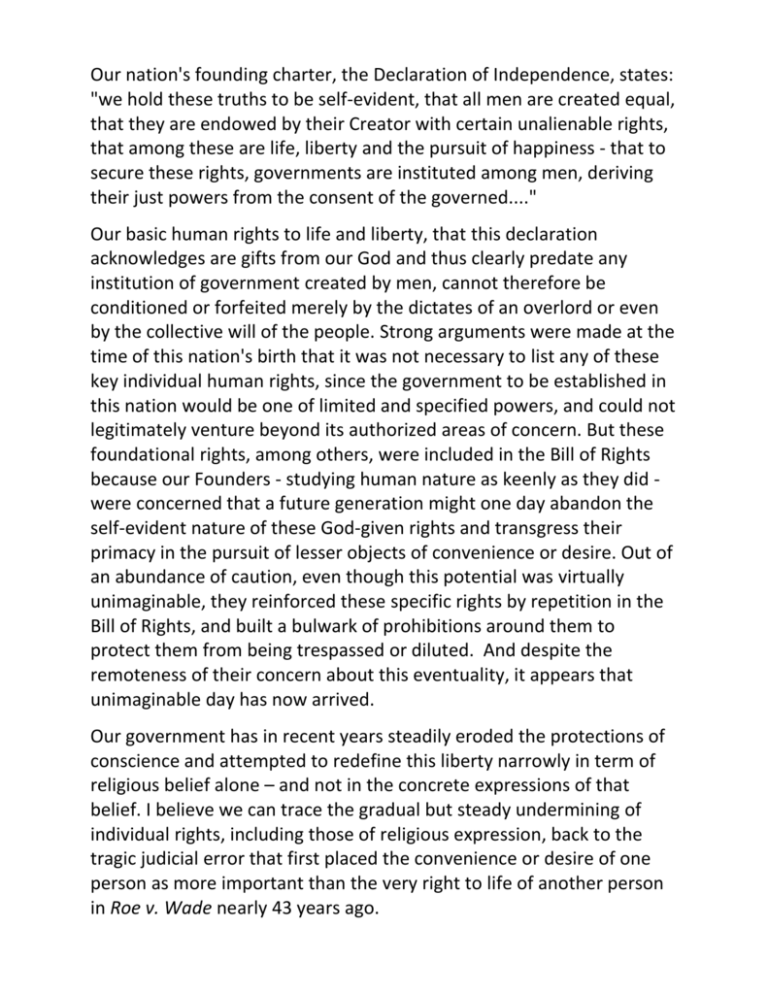
Our nation's founding charter, the Declaration of Independence, states: "we hold these truths to be self-evident, that all men are created equal, that they are endowed by their Creator with certain unalienable rights, that among these are life, liberty and the pursuit of happiness - that to secure these rights, governments are instituted among men, deriving their just powers from the consent of the governed...." Our basic human rights to life and liberty, that this declaration acknowledges are gifts from our God and thus clearly predate any institution of government created by men, cannot therefore be conditioned or forfeited merely by the dictates of an overlord or even by the collective will of the people. Strong arguments were made at the time of this nation's birth that it was not necessary to list any of these key individual human rights, since the government to be established in this nation would be one of limited and specified powers, and could not legitimately venture beyond its authorized areas of concern. But these foundational rights, among others, were included in the Bill of Rights because our Founders - studying human nature as keenly as they did were concerned that a future generation might one day abandon the self-evident nature of these God-given rights and transgress their primacy in the pursuit of lesser objects of convenience or desire. Out of an abundance of caution, even though this potential was virtually unimaginable, they reinforced these specific rights by repetition in the Bill of Rights, and built a bulwark of prohibitions around them to protect them from being trespassed or diluted. And despite the remoteness of their concern about this eventuality, it appears that unimaginable day has now arrived. Our government has in recent years steadily eroded the protections of conscience and attempted to redefine this liberty narrowly in term of religious belief alone – and not in the concrete expressions of that belief. I believe we can trace the gradual but steady undermining of individual rights, including those of religious expression, back to the tragic judicial error that first placed the convenience or desire of one person as more important than the very right to life of another person in Roe v. Wade nearly 43 years ago. And so the Church, its faithful members and leaders, its inspired service organizations, and many others of good will and right conscience, have advocated tirelessly for the reversal of this error since its very inception. As monumental as this tragic case is, it was not the first time an error by government overreach violated the foundational religious liberties of the people of this great nation. Protecting the rights of parents in this country to educate their children in religious schools was preserved by the efforts of the Knights of Columbus in the 1920s. The prime challenge facing us today is the Health and Human Services mandate implementing provisions of the Affordable Care Act – a Congressional overreach that threatens with devastating financial penalties those who would resist its demands to participate in morally unacceptable practices – most notably facilitating the killing of innocent lives. In urging the adoption of the Health Care Conscience Rights Act (S 1919), recently introduced by Senator James Lankford of OK with 14 cosponsors, Archbishop William Lori of Baltimore and Cardinal Sean O’Malley of Boston wrote: “Congress should act to reaffirm a principle that has long enjoyed broad bipartisan support: Government should not force anyone to stop offering or covering much-needed legitimate health care because they cannot in conscience participate in destroying a developing human life or violate their conscience in other ways. We strongly urge you to support and co-sponsor (this bill). The second major challenge we face is the recent Supreme Court decision that redefines “marriage” to include relationships outside of the norms established by nature, societal traditions and faith. The social upheavals that will be wrought by this judicial overreach are only beginning to be discovered. We are obliged by our Christian faith to protect the precious gift of marriage as the permanent, faithful, fruitful union of one man and one woman. It is the gift upon which our society is built. And so we must remain free to affirm that uniquely valuable gift in a unique way, without risk of government sanction. Archbishop Lori recently said this: “When people seek to put their religious convictions into practice, especially those that pertain to the nature of marriage and the family, then they are often labeled as bigots, as devotees of discrimination. Indeed, religious liberty is not real if we are not free to proclaim and live by views that are culturally unpopular; or if it is said that we are free to advocate for such views, but we are fined, taxed, jailed, or otherwise marginalized when we try to act upon our convictions.” The primacy of religious liberty and rights of conscience are self-evident - they are contained in the very first amendment to the Constitution. Our Congress in its law-making function, and our courts in interpreting those laws, have a rich history of finding the required balance and even fashioning accommodations when needed to maintain the primacy of these fundamental human rights - rights that predate law itself – rights that find their source in the essential dignity of the human person made in God’s image. Surely a government that has found a way to respect the dietary, grooming and religious expression needs of even those persons incarcerated for violence against the community can find a way to respect the life-affirming religious values of those persons committed to meeting the most critical needs of the poorest members of our community. Thank God for the Little Sisters of the Poor and hundreds of other faith-based organizations who provide loving personal service based on a firm belief that our God is alive in each of us and we serve Him by service to each other – especially those most in need. Every day, across this nation and even this world, the Church feeds, clothes and shelters more people; educates and trains more people; counsels, motivates and assists more people to change their lives for the better; and tends to the medical needs of more sick, injured and aged people than any other institution in the world today, and has been doing so for centuries longer than any institution in all of human history. Cardinal Timothy Dolan of New York said it well: “America is at its best when religion has a place at the table.” “The stakes are high,” Archbishop Joseph Kurtz of Louisville said; “We cannot stand by and allow anyone to force us to separate our acts of service from the living faith that motivates these acts, and we cannot allow anyone to force us to facilitate immoral acts that go against our clearly demonstrated living faith.” Pope Francis has told us of the great dangers in too narrow an understanding of religious freedom. In his apostolic exhortation, Evangelii Gaudium (255), he says this: “(a) healthy pluralism… does not entail privatizing religions in an attempt to reduce them to the quiet obscurity of the individual’s conscience or to relegate them to the enclosed precincts of churches, synagogues or mosques.” In Pope Francis’ recent visit to America, he said: “Religious liberty remains one of America’s most precious possessions” and he encouraged us to be good citizens who are vigilant, ready “to preserve and defend that freedom from everything that would threaten or compromise it.” We need a robust and healthy religious freedom in our nation. We need laws like the 1993 Religious Freedom Restoration Act to protect people of deep faith convictions when their practice is threatened. This act rightly holds our government to very high standards. It ensures that, when authorities would impose a practice that conflicts with the deeply held religious beliefs of some, the government must make a special showing to justify both the ends and the means. The government’s ends must be compelling, and it must choose the means, among all those available, that is the least restrictive of religious exercise.” It is not asking too much for us to demand of our government to find a way to allow those committed to lives of faithful service to not be forced to violate the same beliefs which motivate their service. We can do it...we know it is possible...and we expect it. We will not stop until we have achieved it. Viva Cristo Rey! Douglas E. Oldmixon Texas State Secretary Knights of Columbus
